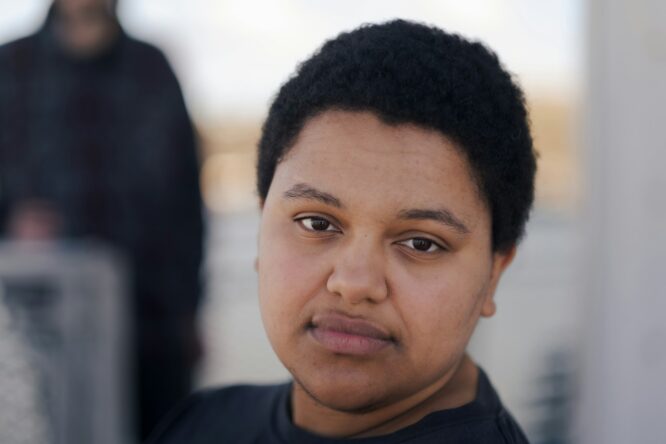There was probably a time when flash impressed you.

The luxury, the drama, the curated perfection—it all seemed like a marker of success or something to aspire to. But somewhere along the way, that sheen wore off. Maybe it was a few empty conversations, a toxic job with shiny perks, or just a personal change. Now, loud doesn’t equal strong. Showy doesn’t mean smart. And people who constantly perform for attention don’t hold the weight they used to. If you’ve grown out of being dazzled by flash, here are a few things that are probably true about you now.
1. You value consistency more than charisma.

You’ve learned that showing up when it matters means more than making an entrance. People who are quietly reliable impress you more than those who are loud one day and gone the next. That steady energy is extremely rare, and it says a lot more about someone’s character than how charming they are in a crowd. You’ve stopped chasing the spark and started looking for stability.
2. You’ve been burned by style with no substance.

Maybe you’ve worked with, dated, or trusted someone who talked a big game but couldn’t back it up. It left a mark, and now, you watch what people do, not just what they say. You don’t need the pitch anymore. You want the follow-through. Flash doesn’t faze you because you’ve seen how often it hides chaos, insecurity, or empty promises.
3. You’ve developed a sharper nonsense radar.

You can spot performative confidence a mile away now. The rehearsed humility, the name-dropping, the curated vulnerability—it all registers as noise instead of depth. Instead of getting drawn in, you step back. You’re more interested in how someone treats people who can’t offer them anything than in how polished their Instagram looks.
4. You’ve redefined what success means to you.

At one point, you thought success meant flash—nice car, big title, expensive clothes. Now, your definition is quieter. Peace, time, good relationships, autonomy—that’s what feels like winning. You’re no longer measuring worth by optics. You know how easy it is to look successful while quietly crumbling. You’d rather be real than impressive.
5. You know the difference between confidence and ego.

You’ve spent enough time around both to tell them apart. Real confidence isn’t loud. It doesn’t need to prove anything; it’s relaxed, solid, humble without shrinking. Ego, on the other hand, can’t stop broadcasting. And once you see the difference, it’s hard to unsee it. You’re drawn to grounded energy now, not performance.
6. You’re less interested in being impressed and more interested in being connected.

The goal used to be being wowed. Now, it’s feeling understood. You want depth, not display. People who are emotionally intelligent and self-aware hold your attention more than those who are simply captivating. You’ve learned that connection beats clout. And you’re not afraid to walk away from people who only show up to be seen, not to actually engage.
7. You’ve embraced your own quiet power.

You no longer feel like you have to be the loudest in the room to be taken seriously. You’ve built confidence in your own way—through resilience, reflection, and showing up when no one’s watching. Because of that, you spot real strength in other people, too. It’s not in who commands attention—it’s in who holds space without needing it all to revolve around them.
8. You’ve let go of needing to prove yourself.

You used to care more about being noticed, about being impressive, sharp, enviable. These days, however, you’d rather be respected by a few than admired by many who don’t know the real you. That change freed up your energy. You stopped performing, and you started choosing peace. Because of that, flashy people don’t threaten or inspire you anymore—they just look tired.
9. You’ve seen how insecurity often hides behind the spotlight.

The more someone needs to be seen, the more you question what they’re trying to outrun. You’ve noticed how the most dramatic people often carry the most hidden anxiety. This doesn’t make you judgemental—it just makes you aware. You know not all flash is confidence. Sometimes it’s a mask. and you’d rather connect with someone who doesn’t need one.
10. You’ve been in the room with “important” people and left underwhelmed.

Whether it was a work event, social scene, or big name you once admired, you’ve realised that a lot of status is just smoke and mirrors. Polished doesn’t always mean profound. You’ve learned that some of the wisest, kindest, most grounded people you’ll ever meet won’t have a platform, and that insight has definitely changed what impresses you for good.
11. You’ve built a life that doesn’t need outside validation.

You’re no longer curating for other people’s opinions. Your choices are quieter, but they’re yours. You don’t need applause to know you’re on the right path. That kind of self-trust makes you immune to a lot of surface-level noise. You don’t need shiny distractions—you’ve got substance, and that’s enough.
12. You see vulnerability as strength, not weakness.

Flashy people often avoid real vulnerability. They show you what they want you to see, but never what’s messy, tender, or unfiltered. That makes their power feel flimsy to you now. Real strength, you’ve realised, looks like being honest about your limits, being open, and not always being impressive. That depth hits harder than perfection ever could.
13. You’re more drawn to self-awareness than status.

You’ve met people who tick all the boxes on paper, but have no idea who they really are. That used to impress you, but now it makes you tired. You’re looking for people who know their blind spots. Who take ownership. Who evolve. You’ve outgrown the highlight reel—you want the full story.
14. You’ve realised peace is the real flex.

Once you’ve tasted real inner peace, flash feels loud, exhausting, and unnecessary. You’re not chasing chaos disguised as charm anymore. You’re protecting your nervous system first. Peaceful people, calm rooms, honest interactions—that’s what you crave. You’ve stopped idolising who shines the brightest and started respecting who moves with ease.




